Olympic training squad fed up with sharing pool with rival Chinese swimmers
A TOP Australian swimmer has stormed off the pool deck at an official Olympic training facility as anger over China’s continued presence on the Gold Coast boils over just four months out from the Rio Games.
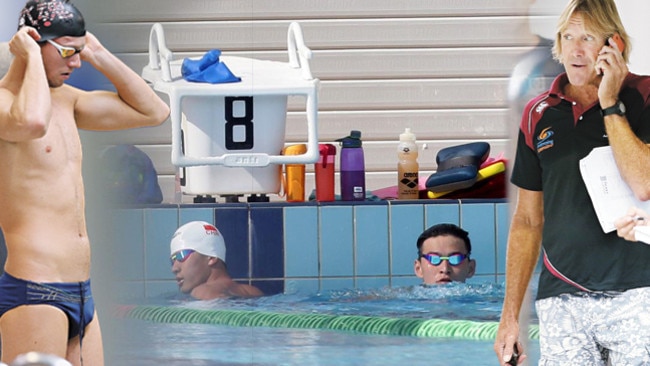
News
Don't miss out on the headlines from News. Followed categories will be added to My News.
A TOP Australian swimmer has stormed off the pool deck at an official Olympic training facility as anger over China’s continued presence on the Gold Coast boils over just four months out from the Rio Games.
Thomas Fraser-Holmes, a freestyle medal hope who trains alongside Grant Hackett at the Miami Swimming Club, confirmed this week he was upset he had to share a pool with a Chinese squad during an evening training session.
The 24-year-old is believed to be among a growing chorus of Australian swimmers who are fed up with having to train alongside their Chinese rivals, some of whom have been suspended or suspected of doping.
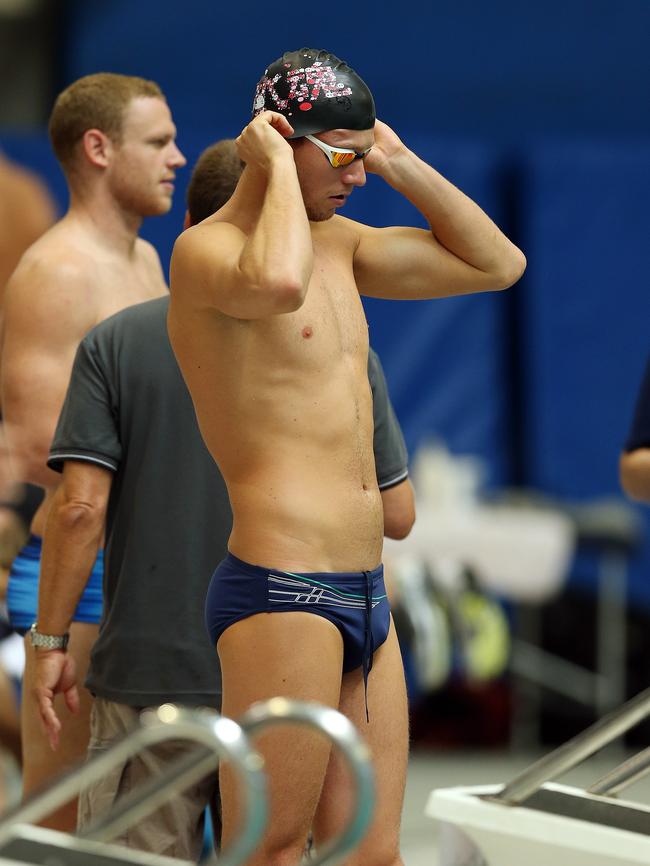
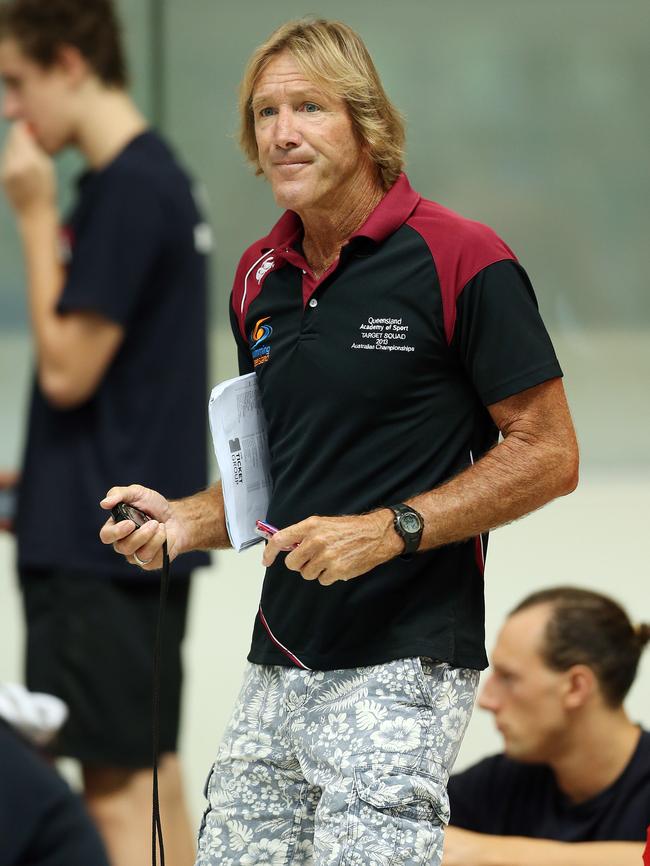
Many Australian swimmers are also believed to be angered that the Chinese are not being subjected to the same stringent drug testing regime as local competitors.
Hackett, who is aiming to qualify for his fourth Olympic Games, said he is tested an average of once every four weeks.
But the veteran Aussie has witnessed Chinese swimmers being tested only once since he began his comeback 18 months ago. That particular test only came about, he said, at the request of Swimming Australia.
“That’s all I have witnessed. I don’t know if there are people going to their hotel,” said Hackett. “I just want everyone to be tested equally. I get tested a lot.”
Fraser-Holmes said his pool-deck protest was not a personal attack on the Chinese squad, who train five days a week at Miami.
“I’m friends with a lot of them. You can pick out your weaknesses and strengths working with those guys,” he said. “But I prefer to train with the squad that I have now.
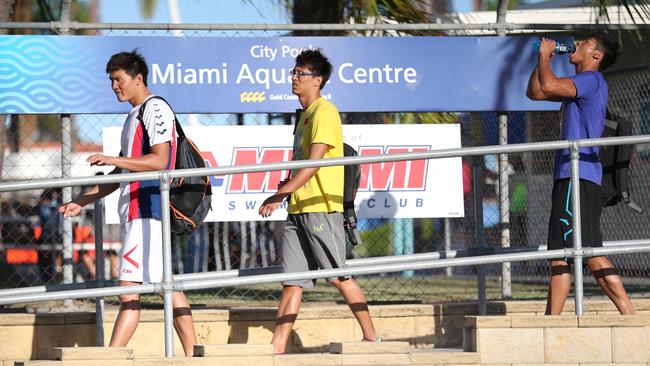
“I have Grant there, who is an Olympic gold medallist, there are some really good guys there. I would rather just keep training against the squad I have at the moment.”
The highest-profile member of the Chinese squad on the Gold Coast, Olympic 1500m champion Sun Yang, was suspended for doping in 2014. Yang, based at Banora Point, is being guided by Brian King, the long-time assistant to one of Australia’s top swimming coaches Denis Cotterell.
Among the estimated 100 Chinese swimmers currently training in Australia are controversial stars including current world 100m freestyle champion Ning Zetao — banned for doping in 2011 — and teenage sensation Ye Shiwen.
Shiwen won the women’s 400m individual medley at the London Olympics, swimming the last 50m freestyle leg in the same time as US champion Ryan Lochte in the men’s event. John Leonard, the executive director of the World Swimming Coaches Association, later called the swim “impossible”, however she has never been found guilty of a drug infraction.
Hackett, who made no suggestion that any of the Chinese squad were currently engaging in doping, admits China’s murky history is an issue in the training pool, particularly when swimming alongside Yang, who spent several months based at Miami in the lead-up to London.
“At a personal level it never makes me feel comfortable,” Hackett said. “When someone has got that history, to me as an athlete who is clean, who wants to race against clean people, and who wants to know if I get a silver medal that that silver medal wasn’t because someone was using performance-enhancing drugs to get gold.
“For me it is always disappointing and it makes me feel uncomfortable when athletes who have been caught using performance-enhancing substances or banned substances are training with us in any sort of capacity.
“I think any clean athlete would feel like that.”
ASADA said it could not comment on how many times it had drug-tested the Chinese swimmers while they were in Australia. However, a spokesman for Swimming Australia said only four tests were carried out between January 2014 and March 2015.
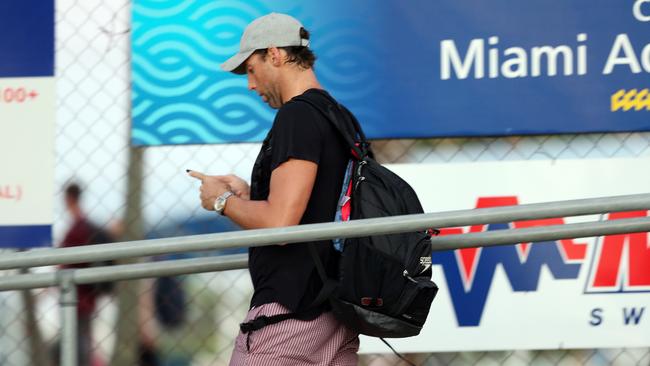
Swimming’s top governing body FINA last year recorded just 894 out-of-competition tests worldwide, the lowest number in a decade.
FINA recently moved to increase its testing of its top 10 swimmers in every nation but notably China, Russia and Brazil have not agreed to implement it, an outcome which Hackett has described as disappointing.
“At the end of day you think countries like China, who are refusing to subscribe to it, is extremely disappointing and it begs the question, why aren’t they?” Hackett said.
Coaching the Chinese has become a booming business for lowly paid Australian swim coaches. Five leading Aussie coaches are believed to be on the Chinese Swimming Association payroll, including Matt Brown, who is coaching formerly banned drug cheat and current world 100m freestyle champion Ning Zetao.
Brown’s salary has gone from five-figures well into six figures and he has the potential of earning a $250,000 bonus for Olympic gold.
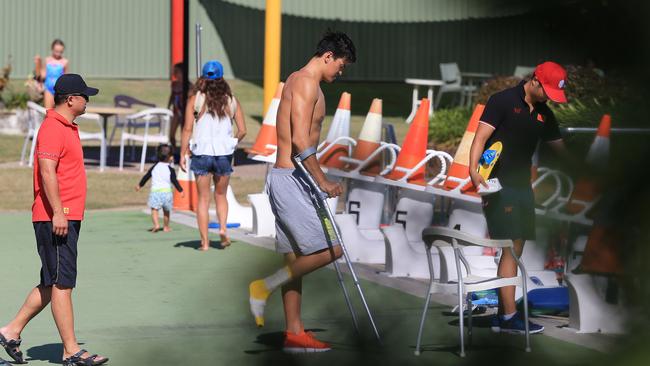
Cotterell has openly boasted of receiving a bonus of up to $1 million following his coaching success of Yang and Shiwen, who both won gold in London.
While Cotterell has denied any professional association with Yang following his drug suspension in 2013, his continued close friendship with the swimmer and his strong ties with the Chinese swimming association have raised eyebrows in the lead-up to Rio.
Bill Sweetenham, an Aussie coach who previously headed Great Britain’s national swimming program, is critical of coaches who remain involved with known drug cheats. “I would find it difficult to approve on a couple of counts,” he said.
The huge presence of the Chinese swimmers on the Gold Coast is also believed to be a source of major discontent among the international swimming community who see Swimming Australia’s involvement with the Chinese Swimming Association as a conflict of interest.
CHINESE WALL OF SHAME
Sun Yang trains on the Gold Coast with Aussie coach Brian King. Tested positive for stimulants in May 2014 at Chinese Nationals and was given a three-month ban.
Ning Zetao Trains in Melbourne under Matt Brown. Banned for a year after failing a doping test in March 2011 for taking a performance-enhancing drug.
Li Zhesi In June 2012 the Chinese Anti-Doping Agency announced Li tested positive for performance-enhancing drug EPO. Dropped from Olympic team and banned for two years.
Li Jingyi Retired. Due to her famously muscular build she was one of many Chinese swimmers suspected of using steroids in the 1990s. She never tested positive for drugs.
Yuan Yuan Retired. A huge cachet of human growth hormone was discovered in his luggage at the 1998 World Aquatics Championships in Perth. At the time it was reported that there was enough to “supply the entire women’s swimming team for the duration of the championships”. Only Yuan Yuan was sanctioned.
Wang Luna, Huijiue Can and Wei Wang Retired. All three tested positive to a banned masking agent at the 1998 world championships in Perth. They were banned for two years.

 "It makes me feel uncomfortable when athletes who have been caught using performance-enhancing substances or banned substances are training with us in any sort of capacity."
"It makes me feel uncomfortable when athletes who have been caught using performance-enhancing substances or banned substances are training with us in any sort of capacity." 

